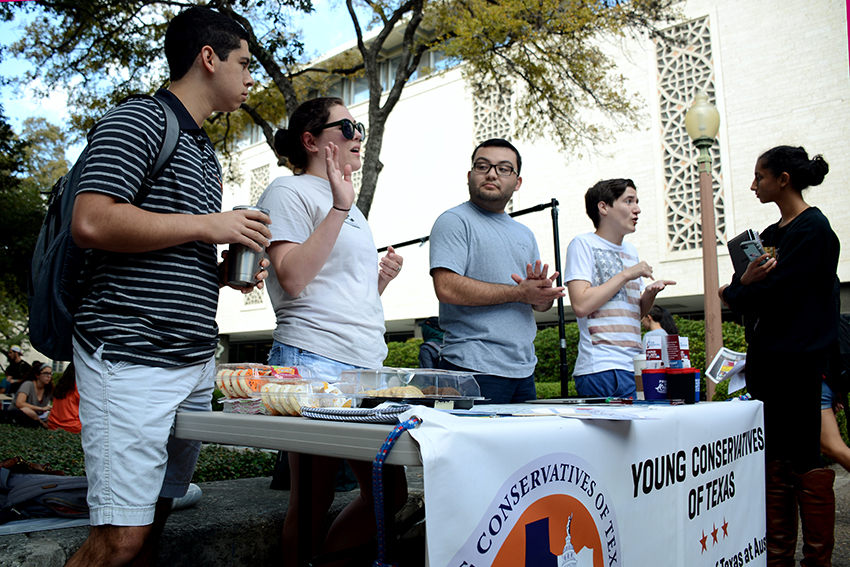During the anti-Affirmative Action bake sale last week, the Young Conservatives of Texas eagerly — but later regrettably — bared their pompous, red rears to the West Mall crowd’s judicious paddle and revealed that some members of the organization lacked primary knowledge of the legislation.
Unfortunately, the ensuing student petition and Student Government bill (AR 15) for administrative action against YCT are susceptible to repudiation as well: both on free speech and educational grounds.
The First Amendment licenses the right to offend, and though the bake sale vulgarly exercised this, AR 15 dismisses their free speech protections. This follows a troubling trend across campuses — where banners against prejudice waive discourse by imposing limits on free expression.
Ranging from “disbanding the organization” to “expelling them,” as potential punishments for future incidents of bias, the bill argues that punishing YCT will impede future offensive demonstrations. But how convincing is this? Do punished political organizations automatically concede to the infallibility of student government? No.
And neither will a federal judge. Four years ago, a district judge ruled that University of Cincinnati’s “free speech zone” violated the First Amendment after Young Americans for Liberty was accused of campus trespassing for passing petitions because the policy banned any public speech in outdoor spaces without 10-day notice.
The authors of AR 15 also mistakenly applied the Bethel School District v. Fraser ruling to college students when the majority opinion stated that First Amendment restrictions on obscenity applied only to “children in a public school.”
Instead, if AR 15 wants to accuse a college student for expressing obscenity, the person must pass the Supreme Court’s Miller Test, in which two out of the three criteria demand that there is an unhealthy interest in sex. Furthermore, university policy adds the caveat that accusations of verbal harassment “be interpreted as narrowly as need be to preserve its constitutionality” (Sec. 13-204).
Failing to concretely establish either charge, AR 15 still has a long way to go. However, perhaps we can sympathize with the desire for punitive measures. YCT’s attribution of monetary value to different races, not their opposition to Affirmative Action, is likely why so many students were upset by the bake sales.
Business sophomore Joshua Ellis, chair of the Student African American Brotherhood, said that it is every person’s right “to protest legislation,” but the bake sale degenerated from a political argument into “degrading populations of people.” Currently, he does not support AR 15 but said that “they deserve repercussions.”
And indeed, the repercussions remain unrelenting. But bear in mind the difference between actions that discredit, and actions that harm us all. Debating dissenting views on campus, no matter how vulgar, educates us and sharpens our arguments. Censoring them deprives us of our right to learn from them.
It is unjust, no matter how benign, for a body of individuals on campus to determine what we can or cannot hear. Instead of being treated like a fugitive on the FBI’s most wanted list, the YCT should be treated like Paula Deen— a footnote allowed to wither from memory.
Zhao is a history and corporate communications junior from Shanghai, China. Follow him on Twitter @_AlbertZhao.





















